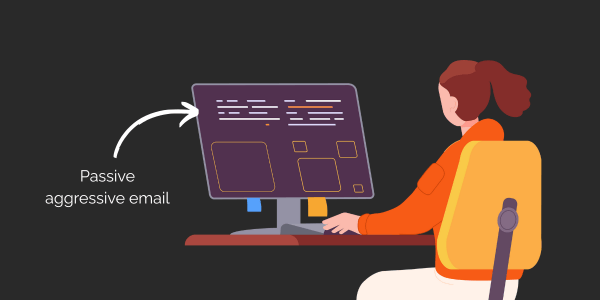- The Resilience Brief
- Posts
- Dealing with irritations
Dealing with irritations
5 tools for reducing annoyances at work or home.

After Abraham Lincoln passed away, a stack of unsent “hot letters” were discovered in his desk. It was a practice of the famous President - whenever someone let him down, he would pour every sharp thought onto paper, fold the letter into an envelope, and then file it away, never to be sent.
This practice was a release. By writing it out, Lincoln bled off the heat of the moment and gave his better judgment time to catch up. It was his way of hitting pause and choosing reflection over reaction.
Lincoln’s practice is just one way we can work through our irritations. But how often are we quick to reach for the keyboard after we ourselves receive a annoying email?
It probably depends on how we’re feeling at the time. Let me explain…
I have a cold. No, it’s not the man flu, but it’s that foggy, low-grade annoyance that makes everything heavier. Last night, I couldn’t find a pen and found myself beyond irritated. Yes, a pen…
But irritation doesn’t just bubble up when we’re unwell. We can feel it in other ways such as lack of sleep, too much caffeine, short emails, or the endless list of priorities that never seems to end. Any of that stuff can tip us into the direction of irritation, which can turn small obstacles into immense challenges.
When we’re stressed (including body stress like inflammation), our amygdala becomes more sensitive and that triggers the release of a bunch of stress hormones like cortisol and adrenaline. That then raises heart rate and blood pressure, tightens muscles, and (more relevant to our irritation), narrows our attention so that every small annoyance feels bigger.
In other words, when we’re stressed, we’re more easily agitated and more reactive than usual.
Awareness is the first step.
Simply knowing that we’re irritated is a good first step. Some of us never see it until it’s too late and we’ve flown off the handle. But if we can spot it early, we’re in a great place to start. That’s when we can begin to address the symptoms, and eventually get working on preventative care.
Let’s talk about addressing the symptoms, especially when we’re in the thick of a project, or someone in sales just dumped another task on our already huge to-do list. Because that’s when we can hit that breaking point.
Here are five tips to reduce irritation immediately:
Write it down. This is like verbal vomiting onto a page or screen. We just unload. It’s quite therapeutic to get down on paper the fact that we’re angry/irritated/scared/anxious. We need to just let go and shout at the screen with words. Remember that it’s for our eyes only, so no one else needs to see it, but this is our visual way of naming it to tame it. We are acknowledging how we’re feeling and that welcomes the pre-frontal cortex to the party. Abraham Lincoln did this. We can also do it too with journaling.
Gratitude. It’s hard to look for the good when everything is irritating, but we gain the most by doing tough things on hard days. We can try to force ourselves to acknowledge what we have. If we’re having the most annoying day at the office and everyone is getting on our nerves, well just think about the person who hasn’t worked for 12 months and would gladly suffer through this day just to have that paycheck. When we shift focus to the GOOD in our lives, we feel a little lighter. There is always something to be appreciative for. Again, write it down if we must. Journaling is powerful.
Do something kind. Help someone with no strings attached because even a small act flips the brain’s chemistry toward calm and connection. It might feel a bit selfish because we end up benefiting from it as well, but I always think that if we’re making a positive impact on someone else, then that’s ok! It has to be without expectation, and it has to be something genuine. Buy someone a coffee, shoot them a light-hearted meme, or just tell them that they’re doing a good job.
Move the body. A short walk, a few push-ups, or even a run (my personal fave) resets the nervous system faster than scrolling ever could. Exercise releases endorphins that make us feel lighter and happier, moving away from the feelings of irritation. Punching bags can also help!
Breathe. This requires the least amount of time, but perhaps provides the most consistent benefits. The physiological sigh, box breathing, or simply taking a few big deep breaths can calm the nervous system and provide us some space to build that awareness that I mention above. Breathing signals safety to the body, which reduces cortisol. Never underestimate the power of the breath.
Life is full of annoyances. Spilt coffee, missing pens, passive aggressive emails. These are never going to stop completely, so it’s good to have the above tools in our toolbox to bring out when we need a quick fix.
After all, if we let irritation run us, we’ll always be at the mercy of others. Practicing any of the above keeps us in control of how we respond, even when we’re not at full strength.
Until next time friends, stay resilient.
Carre @ Resilient Minds
PS - what other tools do you use when you’re extremely irritated? Hit reply to let me know.
What did you think of today's newsletter? |
Reply